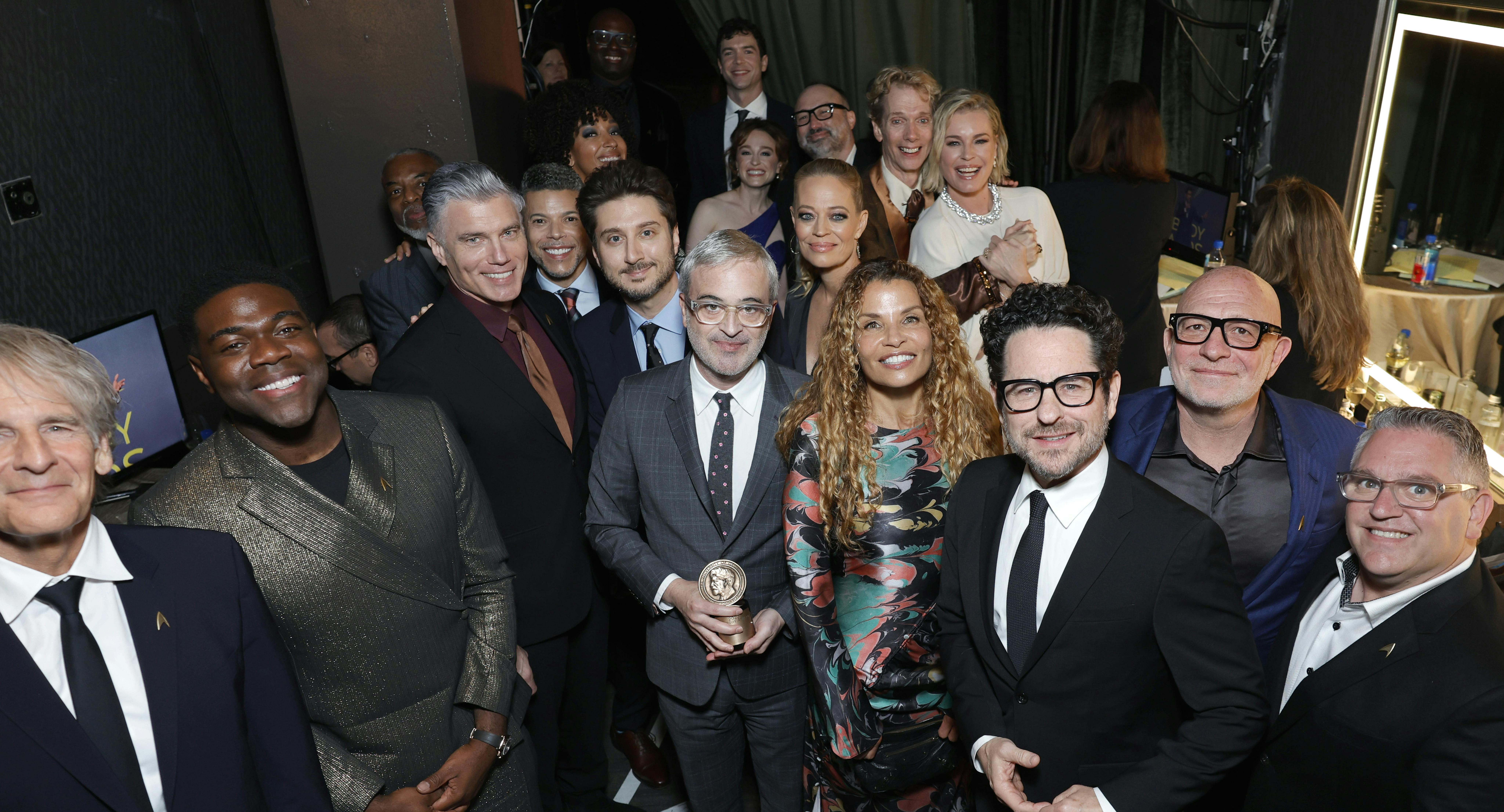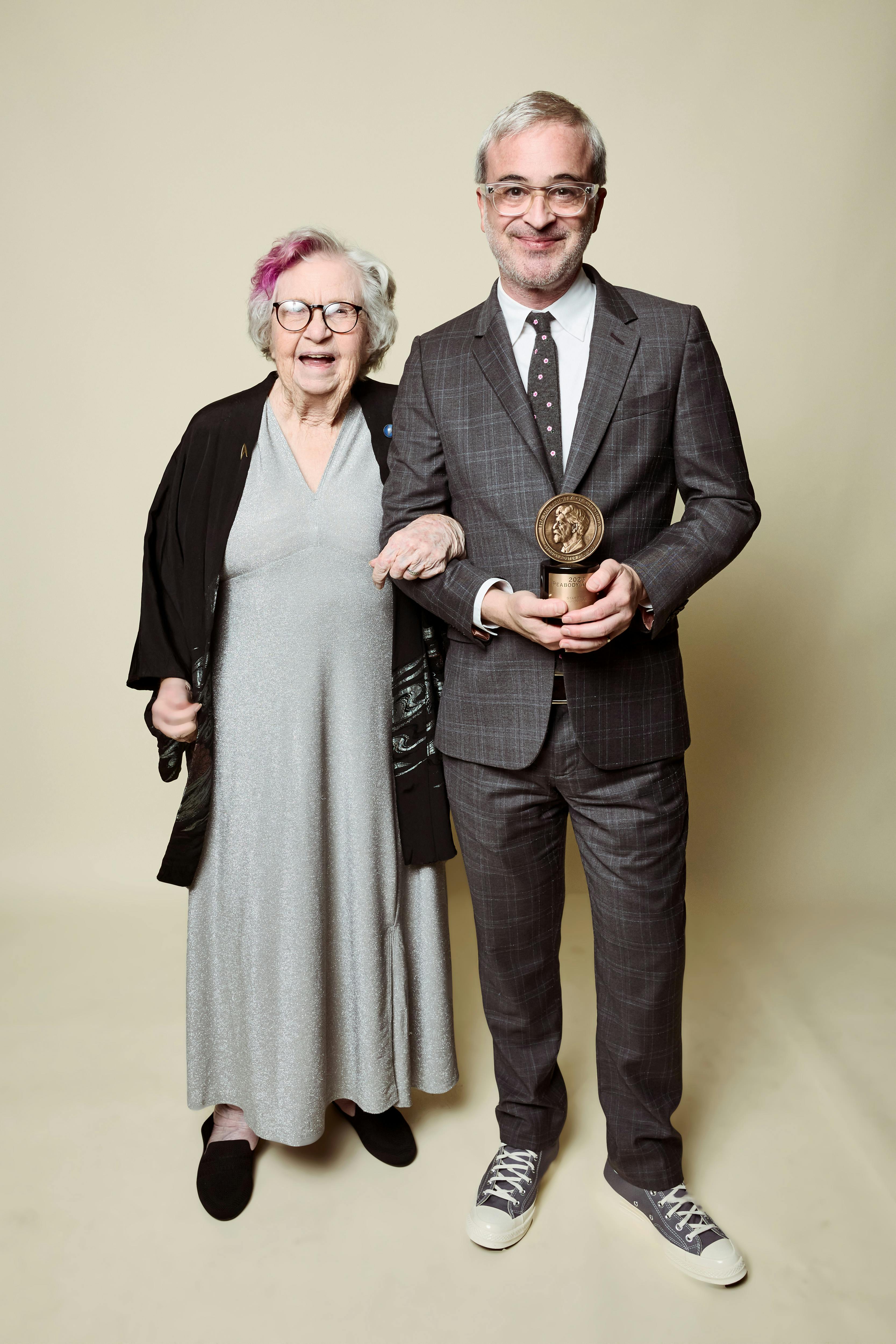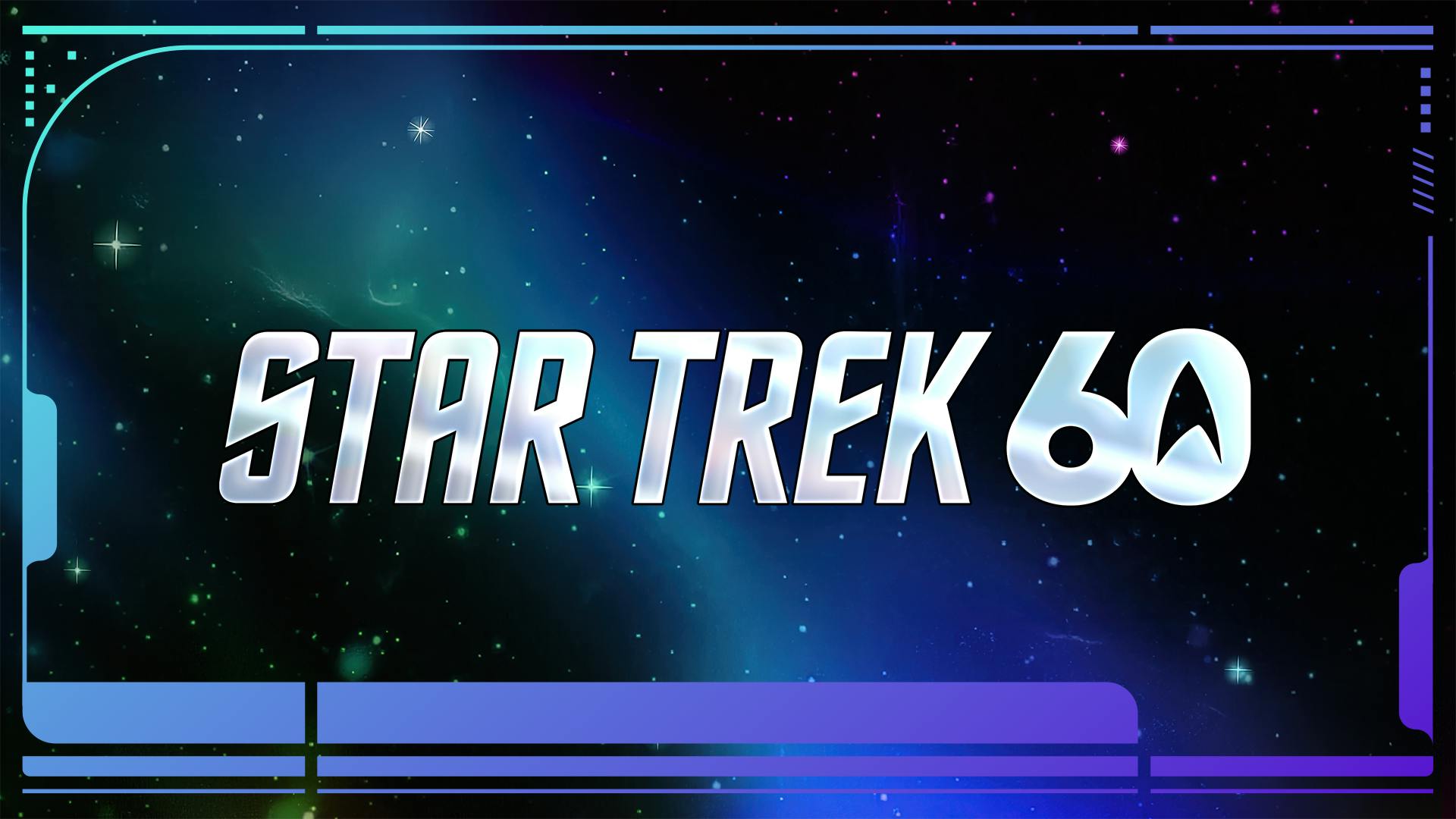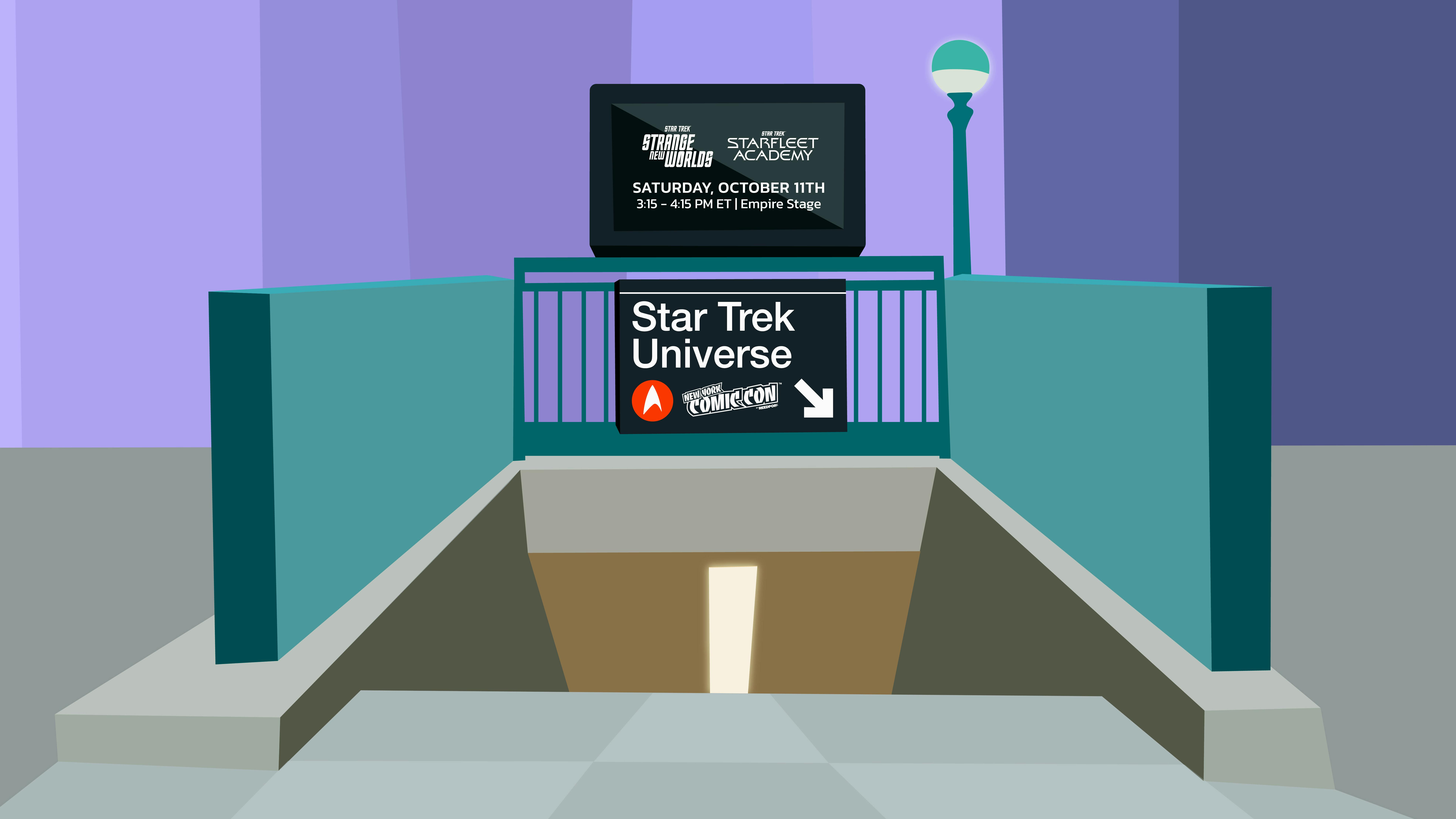Published Jun 10, 2024
Star Trek Honored at 84th Annual Peabody Awards
Alex Kurtzman paid tribute to Bjo Trimble who was also in attendance.

Getty Images for Peabody Awards
Last night, the Star Trek franchise received the Peabody Institutional Award, which is given annually to recognize an organization or long-running television program that has made an indelible mark on the American broadcasting landscape.
Alex Kurtzman accepted on behalf of the Star Trek franchise, and was joined on stage by Patrick Stewart, LeVar Burton, Scott Bakula, Jeri Ryan, Anson Mount, Rebecca Romijn, Ethan Peck, Wilson Cruz, Doug Jones, Tawny Newsome, Sam Richardson, Akiva Goldsman, Henry Alonso Myers, Michelle Paradise, Olatunde Osunsanmi, Noga Landau, Jenny Lumet and Trevor Roth.
Kurtzman spoke about the almost 60 year legacy of the franchise that has given hope to us all and that no matter who you are there is a place for you in the Star Trek family. He also recognized Bjo Trimble, who was in attendance, and had after it was canceled in its second season.

Getty Images for Peabody Awards
The original Star Trek television series aired on NBC for only three seasons, from September 1966 to June 1969. It was fresh, prescient, and so ahead of its time that it couldn't quite capture the mainstream audience required for hits during a particularly insipid time in television. But fast forward nearly 60 years, and creator Gene Roddenberry's vision is alive and well, having spawned a media franchise of 13 feature films, 11 television series, and numerous books and comics, with a legendary fan following. Today Star Trek is more vibrant, imaginative, funny, entertaining, and progressive than ever. And these days, we’ve got the special effects to make it look stellar.
The original science-fiction series was set aboard a starship, Enterprise, whose mostly human crew encountered alien life as they traversed the stars, led by the iconic Captain James T. Kirk (William Shatner). It was groundbreaking for its diverse cast and for its unapologetically progressive values — exploration over colonialism, cooperation over violence. Its fandom grew over time, and the successors to the original series have updated the franchise without losing its moral core — the dream of a future free from human destruction, poverty, and bigotry. Subsequent captains have served as models of ethical and diverse leadership: The Next Generation's Jean-Luc Picard (Patrick Stewart), Deep Space Nine's Benjamin Sisko (Avery Brooks), and Voyager's Kathryn Janeway (Kate Mulgrew) among them.
With every passing decade, new versions have proliferated, attracting new generations of fans. Film reboots directed by J.J. Abrams and Justin Lin revived Kirk and his crew with new, young actors, zippier dialogue, and vastly improved effects in the 2000s and 2010s. The Streaming Era has brought a raft of reimaginings with a variety of sensibilities, from the dark and complicated Star Trek: Discovery to the crowd-pleasing prequel Star Trek: Strange New Worlds to the hilariously meta cartoon Star Trek: Lower Decks. As the latest versions of Star Trek invite in a new generation of viewers, the interstellar travelers still encounter danger and difficulty, of course. But the Starfleet crew always comes out on top — and without sacrificing essential values that seem quintessentially human: valor, self-sacrifice, curiosity, compassion, broadmindedness.





